
by Gideon Marcus
I see you!
We have now entered a phase of the Space Race where there's enough stuff in orbit that other stuff in orbit can take pictures of it. Not just deliberate rendeszvous' like dual missions of Gemini 6 and 7, but snapshots of opportunity, like Gemini 11's photo of the Soviet Proton 3.
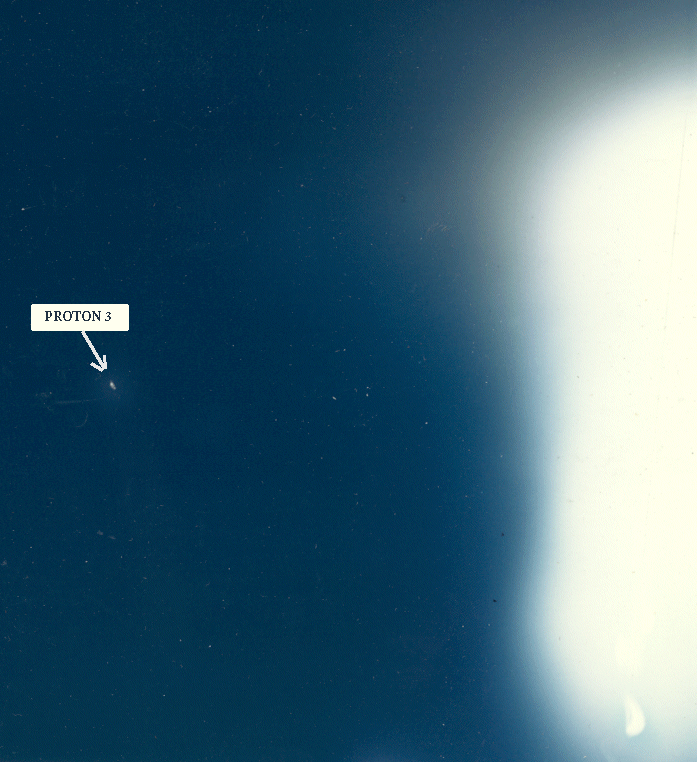
Last week, NASA released perhaps the most extraordinary example of this nature: the first snapshot of a spacecraft sent to the Moon…by a spacecraft sent to the Moon! Lunar Orbiter 3, launched early last month, has been busily mapping our celestial neighbor, searching for the choicest landing spots for Apollo (whose first manned mission, I've just learned, has been delayed until next year due to the Apollo 1 fire.) In the course of its surveying, Lunar Orbiter 3 caught a glimpse of Surveyor 1, the first American soft-lander. It all makes the Moon feel that much closer.
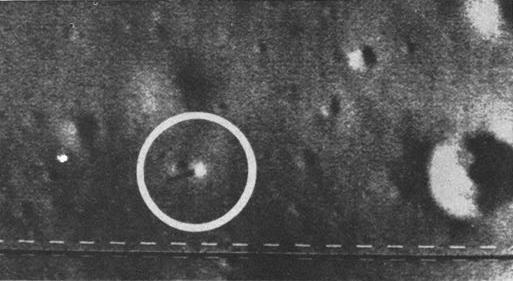
While the newspaper brings us tales of science fiction-made-fact, the stf mags continue to provide the visions of science-to-be. The latest edition of The Magazine of Fantasy and Science Fiction offers several visions of the future: some poetic, some bleak, and some not really worth reading. Good thing I'm here to tell you which is which, huh?
A pail of tomorrows
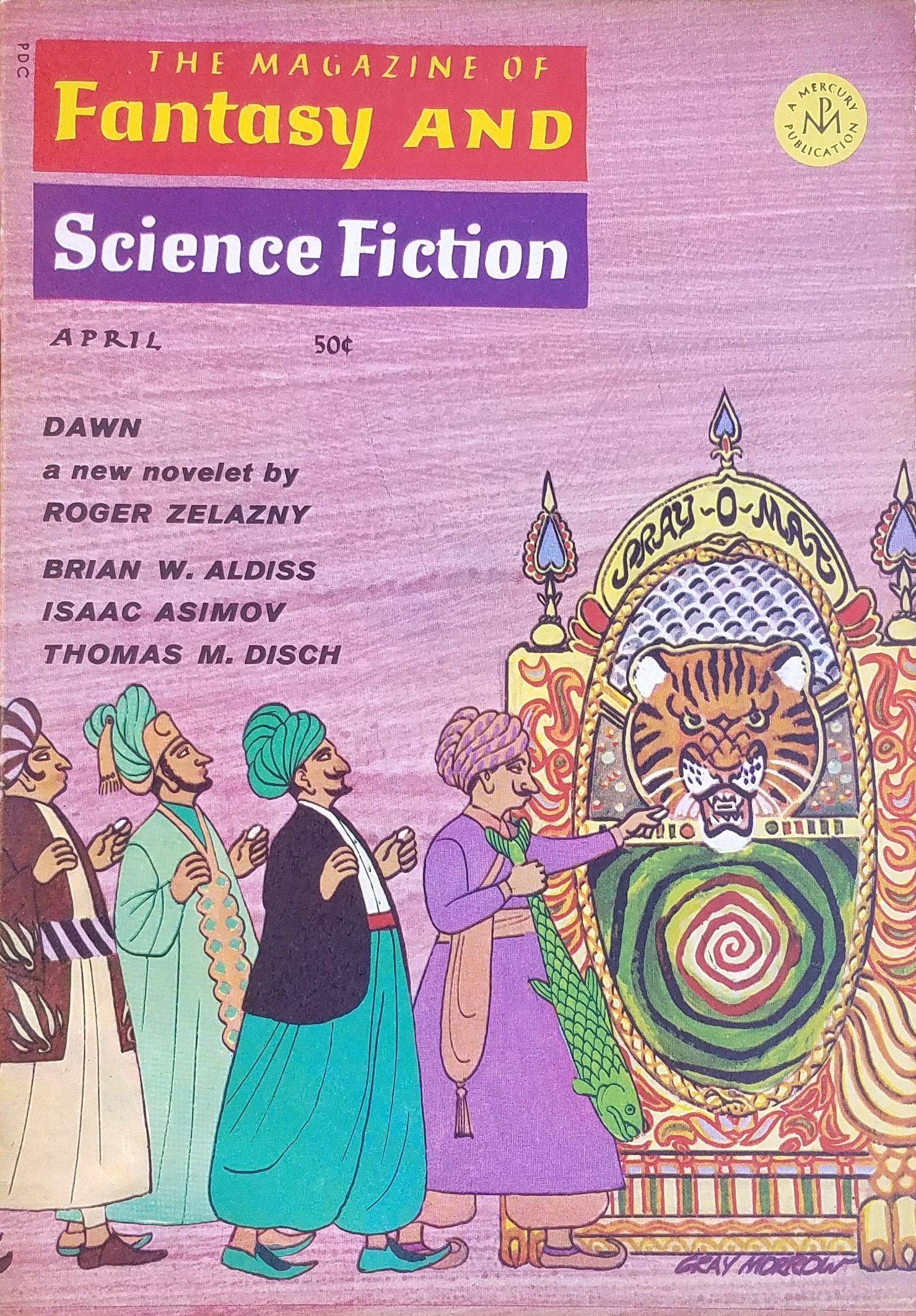
by Gray Morrow
Dawn, by Roger Zelazny
Lord Siddhartha, the Buddha, arrives as the capital for a bit of revelry. There, he is greeted with honors, for he is a prince of this land, redolent with the smells of spice, the bustle of medieval commerce, the prayers of the devoted. At first glance, Dawn seems as if it will be a pure fantasy in a richly drawn world. But there are signs that underneath the veneer of ancient India lies a strictly scientific core.
Indeed, we learn quite soon that Siddhartha is actually Sam, one of the original colonists on this world, a planet whose technology has been deliberately restrained by the cabal of the Firsts and their lackeys, the Masters. Their firm grip lies in their stranglehold on immortality, facilitated by their ability to transmigrate souls from body to body at will.
Sam wants to bring progress to the world. Can he and his band of rebels undo the work of centuries?
Zelazny's latest novella is reportedly the first part of a longer work, to be titled "Lord of Light". If it is as expertly rendered as this fine start, then it'll be a good read, indeed!
Four stars.
The Two Lives of Ben Coulter, by Larry Eisenberg
"The greatest disappointment of Ben Coulter's life was his inability to play the violin well."
So begins the tale of a fellow who turned instead to engineering for the purpose, failing to find it there until he co-developed a technique for the remote control of a living being. Perhaps, at last, he could program mastery into himself.
Most science fiction authors take inspiration from the science news of the day. Some, like Doc Smith, are actually scientists. Larry Eisenberg is perhaps unique in the SF community for extrapolating a scientifiction application of his own invention, the remote controlled pacemaker.
His story, if not quite as personally affecting as his crowning scientific achievement, is a pleasant little piece, nonetheless.
Three stars.
Cloud Seeding, by Theodore L. Thomas
In this fictionless vignette, Thomas suggests combining cloud seeding with chemical distribution. After all, if you're putting stuff in the sky to make rain, why not use fertilizer or poison of what have you.
Thomas forgets that the seeds for the raindrops are necessarily uselessly tiny. I almost feel as though these little exercises are not to present interesting ideas, but are puzzles for the reader: spot the fallacy and win a hundred dollars!
Two stars.
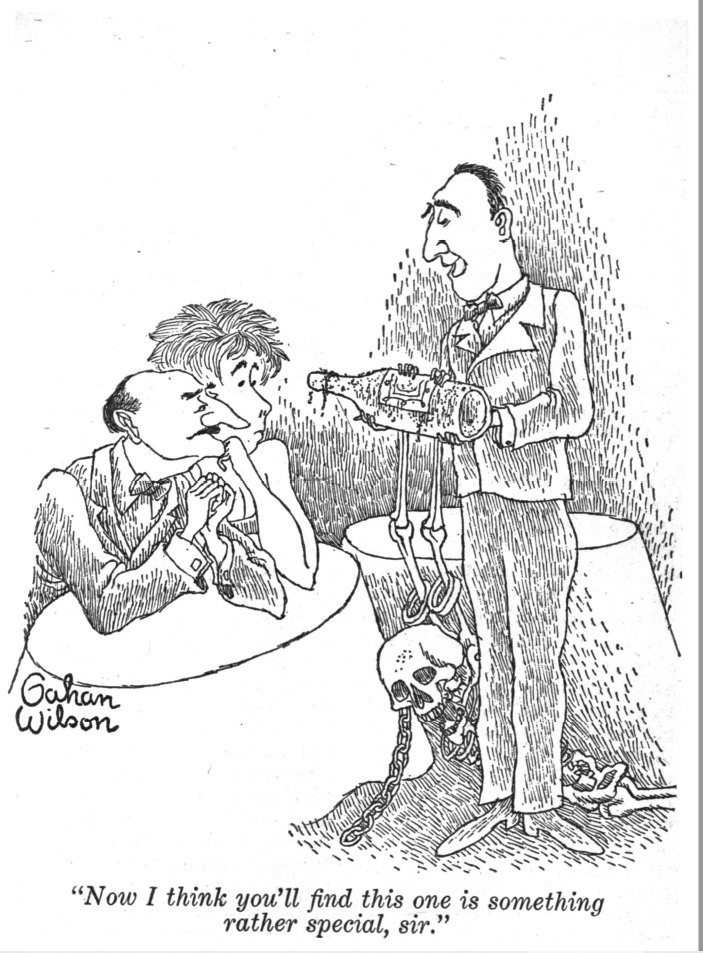
by Gahan Wilson
Problems of Creativeness, by Thomas M. Disch
The 21st Century is an overcrowded, socialist paradise. Everyone is on the childless dole, unless they can prove themselves exceptional, finish college, or join the guerrila forces. Birdie Ludd, the least exceptional of young men, doesn't want to do any of these things. But for the love of Milly, pretty enough almost to be a movie star, he was willing to endure almost anything.
Less a story and more a slice-of-life from the perspective of an indolent youth, Problems relies mostly on a vivid stream-of-consciousness style and copious use of the first profanity I've read within F&SF's pages.
Three stars, I guess.
The Sword of Pell the Idiot, by Julian F. Grow
Farquhar Orpington-Pell, late a subaltern in Her Majesty's Own Midlothian Dragoons, falls in with a Western doctor on the late 19th Century range. Their crooked path takes them to a subterranean complex inhabited by aliens. Things Happen. Supposed-to-be-funny-but-just-tedious things, capped off by the rather insulting punchline that the transpirings inspired a much better, well known set of books.
Feh. One star.
"Virtue. 'Tis A Fugue!", by Patrick Meadows
An advanced world refuses the entreaties of humanity to join a terran federation. Professor Thomas Gunn, a musicologist, provides the key to reaching the hearts of the aliens. Their language is the culmination of tonality, you see, each sentence its own song. Our hyper-efficient, sound-codified speak was too declassé to appeal.
It's all a lot of "mun, mun" to me, and in any event, the revelation came out of nowhere. Indeed, Gunn's story and that of the contact team are completely unrelated until he suddenly appears on the planet in the story's last scenes.
Two stars.
A Matter of Scale, by Isaac Asimov
The Good Doctor goes way out with his latest article. You know those "the sun is a beachball, and the planets are various small fruit several hundred feet away" models you read in all the science books for kids? He's decided to go one better, substituting atomic analogs so the distances can be more relatable.
I'm sure it was a fun exercise for him.
Three stars.
Randy's Syndrome, by Brian W. Aldiss
Lastly, another tale of the next, shoulder-to-shoulder, anti-utopian 21st Century. The foetuses of the world go on strike, refusing to be born into such an awful place. But is it really a mass strike of the unborn, happy in their womb world of racial memory and distorted, second-hand sensory inputs? Or is it some kind of planetary neurosis of the mothers?
Whatever it is, it's not science fiction, more a modern myth. Some might find it clever.
Two stars.
Under the Moon
After such a bright beginning, the April 1967 F&SF stumbles to a finish. I recognize that science fiction is cautionary as well as aspirational, but I feel one needs to say more than "this future we're heading toward is gonna stink..and by the way, the future is now."
The Zelazny is worth your time, however.
And, hey, at least the newspaper brings us pretty pictures!
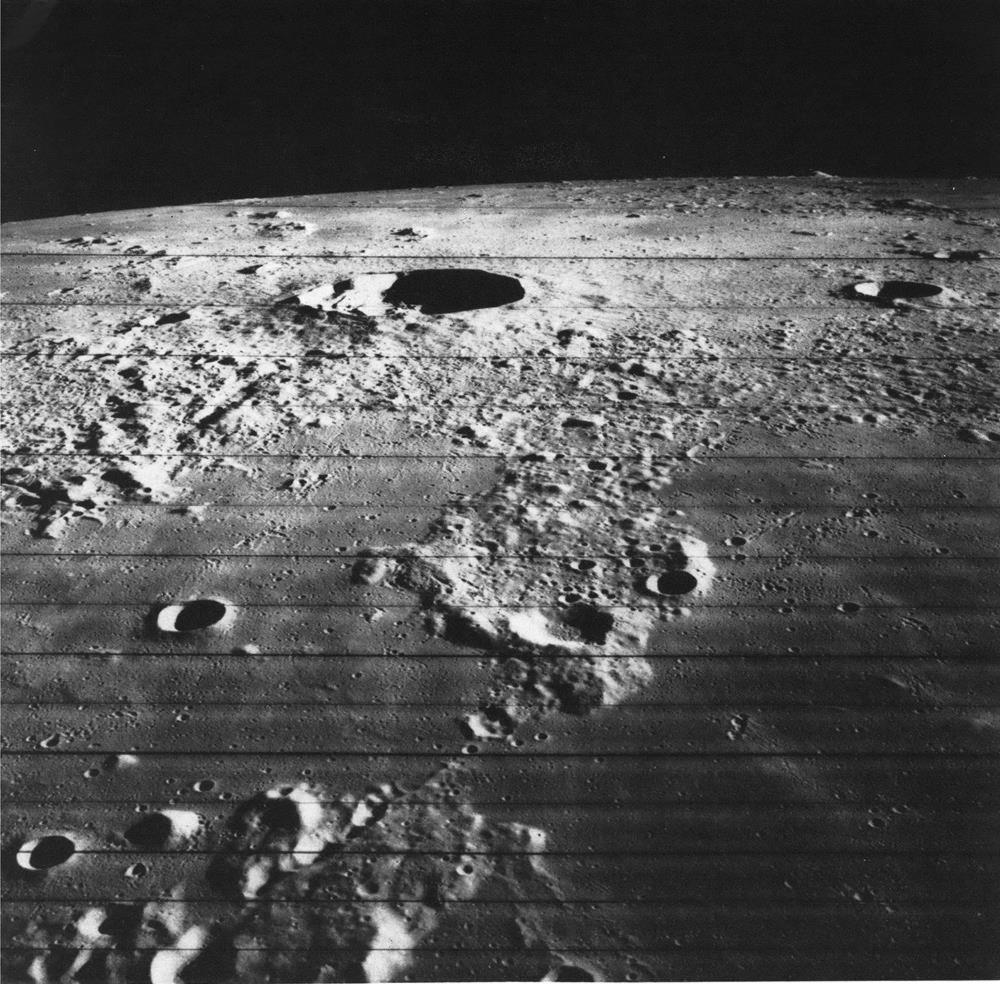

![[March 20, 1967] Vistas near and far (April 1967 <i>Fantasy and Science Fiction</i>)](https://galacticjourney.org/wp-content/uploads/2022/03/670320cover-672x372.jpg)

![[February 20, 1967] To Ashes (March <i>Fantasy and Science Fiction</i>)](https://galacticjourney.org/wp-content/uploads/2022/02/670220cover-661x372.jpg)



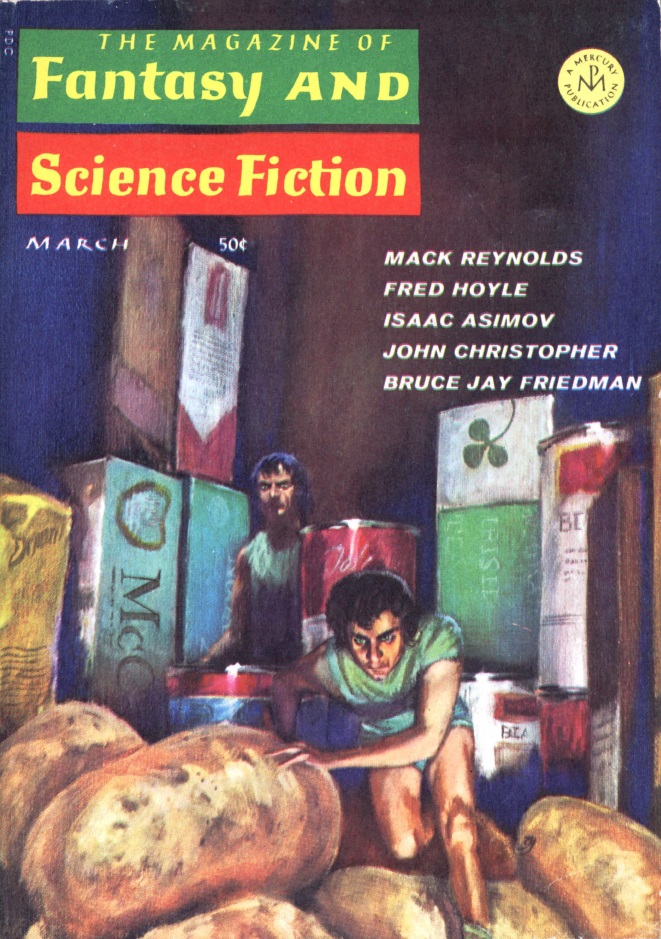
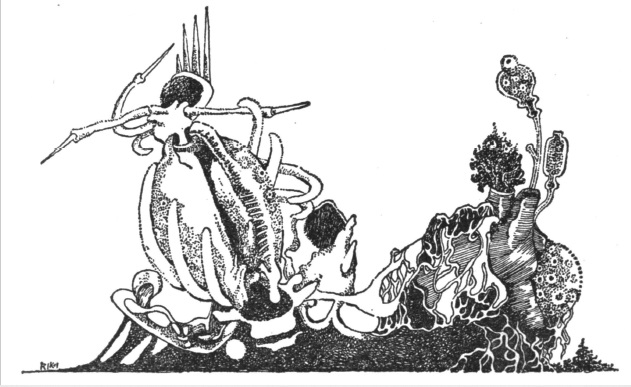
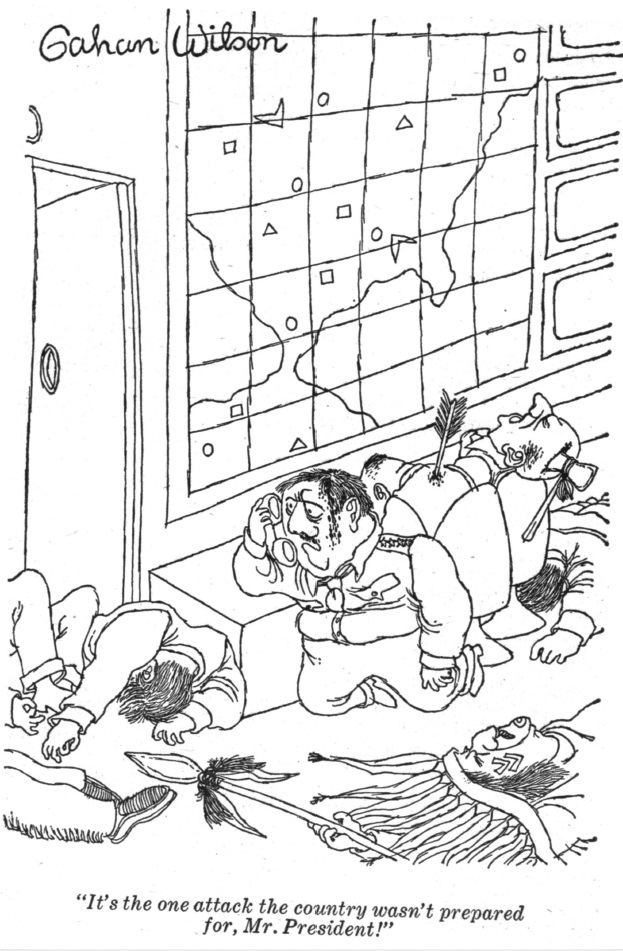
![[January 20, 1967] Sag in the middle (February <i>Fantasy and Science Fiction</i>)](https://galacticjourney.org/wp-content/uploads/2022/01/670120cover-1-422x372.jpg)





![[December 20, 1966] Above and beyond (January 1967 <i>Fantasy and Science Fiction</i> and a space roundup)](https://galacticjourney.org/wp-content/uploads/2021/12/661220cover-656x372.jpg)





![[November 22, 1966] Ha ha. Very funny. (December 1966 <i>Fantasy and Science Fiction</i>)](https://galacticjourney.org/wp-content/uploads/2021/11/661122cover-661x372.jpg)




![[October 22, 1966] Why Johnny Should Read (November 1966 <i>Fantasy and Science Fiction</i>)](https://galacticjourney.org/wp-content/uploads/2021/10/661022cover-653x372.jpg)





![[September 22, 1966] True Idols (the Isaac Asimov issue of <i>Fantasy and Science Fiction</i>)](https://galacticjourney.org/wp-content/uploads/2021/09/660920cover-659x372.jpg)





![[August 20, 1966] Looking forward, looking back (September 1966 <i>Fantasy and Science Fiction</i>)](https://galacticjourney.org/wp-content/uploads/2021/08/660820cover-672x372.jpg)




![[July 20, 1966] An Endless Summer (August 1966 <i>Fantasy and Science Fiction</i>)](https://galacticjourney.org/wp-content/uploads/2021/07/660720cover-672x372.jpg)






![[June 16, 1966] Calm Spots (July 1966 <i>Fantasy and Science Fiction</i>)](https://galacticjourney.org/wp-content/uploads/2021/06/660616cover-672x372.jpg)






